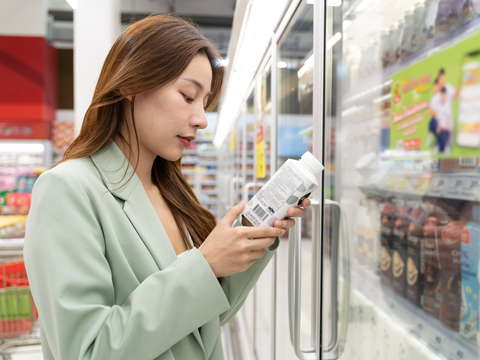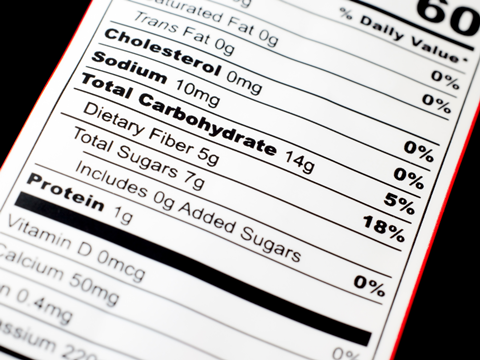
Attempting to tackle an obesity crisis in the US, the US Food and Drug Administration (FDA) has proposed front-of-pack labelling for packaged foods detailing saturated fat, sodium, and added sugars.
Published last month, the proposal suggests that the Nutrition Info box would provide context for consumers on the front of food packages by detailing and interpreting (through ‘Low’, ‘Med’, or ‘High’ descriptions) the relative amount of saturated fat, sodium, and added sugars in a serving of food. While calories would not be included in the Nutrition Info box, a manufacturer could voluntarily include a calorie statement on the front of the food package, per existing FDA regulations.
The proposed rule would establish a compliance date of three years after the final rule’s effective date for businesses with $10 million or more in annual food sales, and a compliance date of four years after the final rule’s effective date for businesses with less than $10 million in annual food sales.

However, a recent study by Georgetown University questions whether front-of-pack (FOP) labelling is effective in tackling the obesity crisis. It states that based on several reports, FOP warning labels have resulted in fewer sales of the labelled foods in Mexico and in Chile, and ‘have not been proven to improve diet quality or consumer health or to stem rising obesity rates’.
The study adds that labelling overlooks the quantities of food consumed in settings that don’t package their food including restaurants, bakeries, cafeterias, and other food service venues. It recommends that FOP labels should be used with other strategies such as marketing restrictions and sugar taxes.
It concludes that while healthier consumers are more likely to read nutrition labels and that with FOP labelling, more products classified as healthier were purchased – but on the other hand, this does not help achieve the goal of improving health for those who are overweight or obese, who read labels the least.
In September 2024, General Mills revealed that 40% of shareholders voted in favour of a Green Century proposal requesting that the company report on its sustainability-minded packaging progress, including plastic reduction and clear labelling. Green Century’s proposal encourages General Mills to ensure that its recycling labels are not misleading, following reports by ABC that store drop-off systems were failing to recycle plastic bags and films and Bloomberg claiming that Nature Valley Granola Bar wrappers were not being recycled via store drop-off schemes but landfilled, incinerated, or exported.
More recently, the Swedish Rheumatism Association launched a product label for packaging and products certified as ‘easy to use’, giving consumers the opportunity to choose packaging tested and approved by people with impaired hand function. The participants assessed the difficulty level of carrying out each step on a 6-point scale from ‘impossible’ through to ‘very easy’, and assessed their hand functions and ability to use the most common grips.
If you liked this story, you might also enjoy:
The ultimate guide to the Packaging and Packaging Waste Regulation in 2025
How are the top brands progressing on packaging sustainability?
Everything you need to know about global packaging sustainability regulation in 2025
The key to increasing the use of reusable packaging in supermarkets














No comments yet